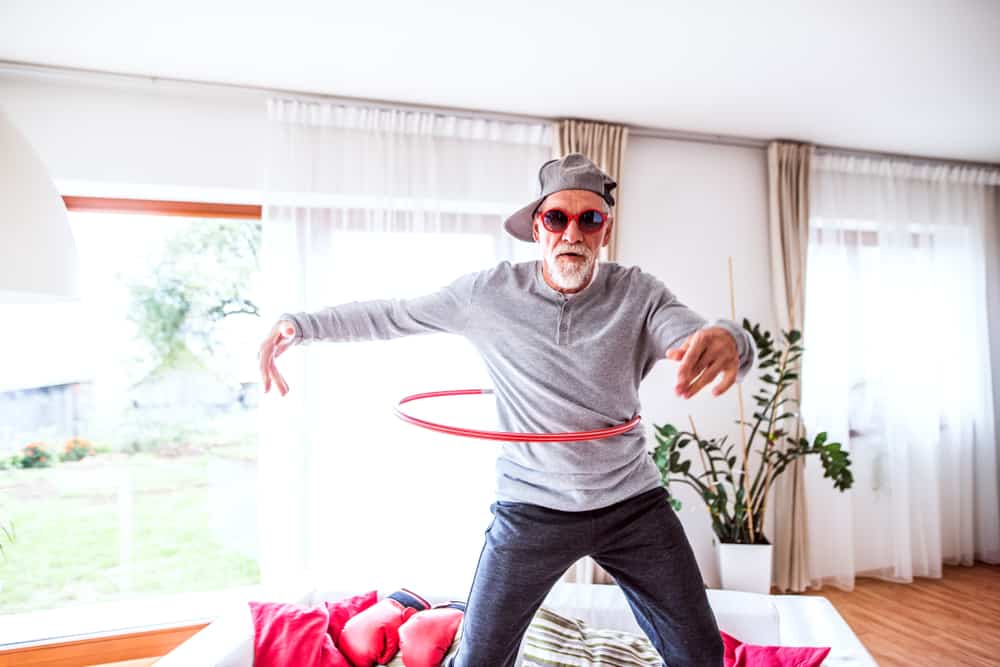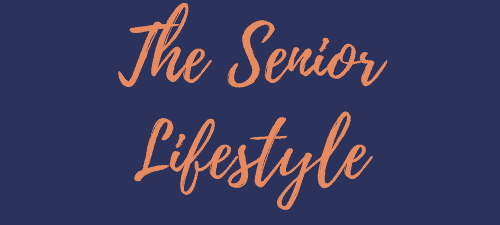
We’ve all heard the saying, “You’re as young as you feel” or “You’re only as old as you feel.” Well, those sayings are proving to be true. And there is a term for that: subjective age. What is your subjective age?
Subjective Age is defined as how young or how old we see ourselves. It is associated with both the neurological and physiological processes of aging. If you think of yourself as young, your brain and body respond accordingly, and you’ll likely live longer. Yes, Science is now telling us that Subjective Age is a thing.
My Mother, in her eighties, exclaimed to me one day that “life begins at 70!” She exemplified those words into her nineties, remaining engaged and interested in art, life, and relationships. She never allowed her appearance to slip: dressing up, applying make-up, and wearing jewelry every single day. She participated in new exercise programs and filled the walls of her long-term care room with her own oil and watercolor paintings. Into her mid-90s she still loved life and personified positive subjective aging. So, what is your subjective age? How old do you really feel?
Subjective Age And Physical Health
Individuals of the same chronological age can experience aging differently. Many North American seniors, even those with multiple diseases and pain, believe they are at least 20 years younger than their chronological age. Women, in particular, tend to feel younger than the birthdate on their driver’s license.
Factors that can affect subjective aging include socioeconomic status and societal messages about old age. Also, one’s subjective age can change over time.
Research on subjective age began in the 1950s. Several studies have discovered that subjective age is a factor in physical health and mortality rates. A study in 2014 determined that subjective aging can affect health, health behaviors, and survival. A 2021 study suggests that a younger SA may lower the risks of requiring institutional long-term care.
Subjective Agers Live Longer
Three longitudinal studies in 2019 demonstrated that those who felt younger than their years had lower mortality rates. Those who felt they were eight years older than they really were had an 18 percent higher mortality risk. Individuals who felt 13 years older had a 25 percent higher mortality risk.
In a separate study in London, researchers followed senior subjects for eight years. Eighty-six percent of those who said in the initial survey that they felt younger than their years were still alive eight years later, while only 75 percent of those who felt older than their years were still living.
Subjective Age and Brain Health
Although subjective age has a small to moderate effect on physical health, scientists found it can significantly affect brain health. A 2018 study conducted in Seoul, South Korea, saw 68 older adults undergoing SA surveys and MRIs. The results demonstrated that those who experienced themselves as younger than their actual age showed more gray frontal matter in the inferior frontal gyrus and the superior temporal gyrus. Inferior frontal gyrus controls language processing. Superior temporal gyrus is the site of the auditory association cortex and a site of multisensory integration, playing a role in recognizing the spoken word.
This same study also found that subjective age plays a significant role in brain aging. Those who perceived themselves as younger than their chronological age had healthier and better-preserved brain structures. In contrast, individuals who perceived themselves as older than their chronological age had faster aging structures. Previous studies have demonstrated that a younger SA generally leads to better cognitive function.
Subjective Age and Psychological Health
Subjective age can also affect psychological health. A 2018 study of aging in ethnic minorities determined that a positive subjective age (or feeling younger than your chronological age) can positively affect psychological health and overall well-being. A study in 2021 of primarily non-Hispanic whites discovered that a perceived younger subjective age is a buffer to a variety of adverse effects of aging, which the study refers to as frailty. A younger SA contributed to fewer depressive symptoms, less stress, and less loneliness.
A German study supported the concept of SA as a buffer against decline. Participants who experienced more stress in their lives generally had lower functional health. However, the link between stress and functional health was weaker among those with a positive SA.

Gaining a Positive SA
A positive SA occurs when you feel younger than your years. One conduit to a positive SA and better health is exercise. Those who feel younger than their years are more likely to engage in exercise, even if difficult. Studies show that those who exercise moderately for 150 minutes each week enjoy better health. Exercise increases metabolism, which assists in maintaining a healthy weight and improves muscle tone.
Another indicator of a positive SA is diet. People who feel younger tend to eat a healthy diet with an eye to their future. They avoid foods with excessive sugar or trans fats and choose foods high in fiber, whole grains, and Omega 3 fatty acids.
Staying well-hydrated also increases energy, which can contribute to a positive SA.
Feeling younger can inspire a sense of resilience and hope. The idea that options are still available is another key to a longer and healthier life.
Subjective Agers Socialize
A positive subjective age may encourage you to learn new skills and explore new ideas. It may also encourage mindfulness, which focuses on the present moment instead of dwelling on any unhappiness in the past.
Having fun, especially participating in activities you enjoyed when younger, contributes to a positive SA. Listening to music you loved as a teen has the same effect.
Adopting a pet can provide a sense of purpose and make the pet owner feel younger.
Reconnecting with old friends, whether by phone, video, or social media, can positively affect SA. Reliving the fun experiences of our youth can mentally set back the clock and help us feel younger again.
Another way to feel younger is to wake early in the morning and get dressed, even if you have nowhere to go. Ditch the polyester and the pants with an elastic waistband. Wear bright colors and contemporary fun patterns, and you will feel younger.

Finally, smiling can make you feel younger. It will lift your mood, lower stress, and boost your immune system.
A Positive SA in Practice
One example is Harriette Thompson. Harriette was a retired classical pianist who once played at Carnegie Hall. She was also a four-time cancer survivor. At 76, she ran her first marathon. At age 92, she made world history at the Rock and Roll San Diego Marathon by being the oldest woman to cross a marathon finish line.
Nola Ochs, age 95, made history by becoming the oldest U.S. college graduate. She started her college degree in 1930, but her studies were interrupted. After raising children and grandchildren, she began taking classes at a local community college. Nola then re-enrolled in Fort Hays State University, graduating with her granddaughter. Ochs went on to earn a master’s degree at age 98.
Another positive SA example is Wesley Brown, who continued as a federal judge on the Kansas District Court until he died at age 104. President Kennedy appointed Brown to the bench in 1962, and fifty years on, Brown still climbed the four flights of steps to preside.

Frances Woofenden began water skiing when she moved to Florida at age 50 and continues skiing well into her 80s. She has won more than 100 medals.
Georgina Harwood, a South African great-grandmother, celebrated her 100th birthday by jumping out of an airplane and swimming with sharks. She began jumping at age 97 and used her 100th birthday jump to raise money for South Africa’s National Sea Rescue Institute.
At 74 years of age Ernestine Shepherd became the world’s oldest bodybuilder. She now gets up at 3 a.m. to run and works as a personal trainer at her Baltimore gym. Logging about 80 miles of running each week Shepherd can bench-press 150 pounds. She says she feels better now than she did in her 40s.
Finally, members of the Young@Heart chorus who are in their 70s, 80s, and 90s tour the USA singing rock favorites. These Massachusetts residents have won 10 awards.
Scientific research has linked a positive SA to a longer, happier, and more functional life. You can be as young as you feel. Practicing mindful, healthy, youthful habits can get you there!
